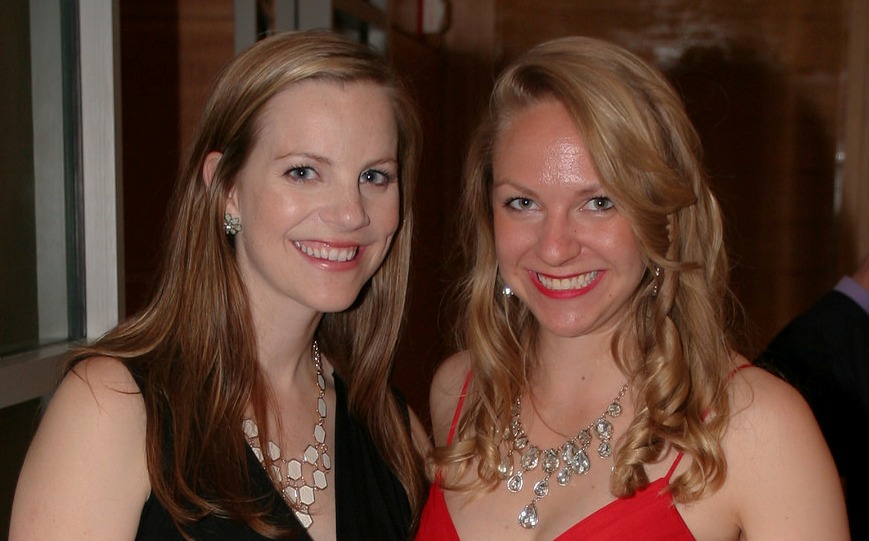Staff Profile: Brit Vorreiter
 Life has a tendency to veer us off course, but often yields wonderful opportunities previously unimagined.
Life has a tendency to veer us off course, but often yields wonderful opportunities previously unimagined.
Brit Vorreiter (pictured on the right), the Director of Membership and Programs at America’s Future Foundation, discovered that early on, before entering the job market.
“Like most people in DC, I moved here thinking I wanted to do research. Well, I quickly figured out I didn’t want to do research because I wanted to interact with people,” she said. “I wanted to feel like I was actually doing something.”
It was with this ambitious attitude that she happened upon the liberty movement without really knowing much about it or what it even meant. But what she did know was that by taking action rather than simply arguing philosophy is what makes things truly matter to people.
“Most people in the liberty movement are in it for philosophical reasons, but I came in purely for economic and common sense sort of reasons,” Vorreiter said when talking about her time at Mercer University in Georgia, which is one of the few universities in the country that teaches free market economics.
Though she was a business and economics major, it was her political science minor that she tacked on her senior year that exposed her to the political arena and libertarian principles. During her final semester she took a class titled Primaries in the Media, which was around the time the Republican primary was happening.
During a trip to South Carolina where Republican candidates like Mitt Romney and Ron Paul were on the campaign trial, she saw how “consistent” libertarian principles were and became known as the “Ron Paul of the class.”
“Generally speaking, at least in today’s world, most of our generation either grew up Republican or Democrat or grew up not caring,” she said. “Libertarian is not something you grew up as, its something you end up choosing. You take responsibility and accountability for [your choice].”
The more time Vorreiter has spent involved in the movement she found that “liberty is something that makes the most sense and also seems to help the most people. It’s something that speaks to people, especially undergraduates looking for jobs [and] a belief system that allows them to be fiscally conservative and socially liberal.”
Her most recent experience with the movement has been with AF, which she says “acts as a platform for opportunities” to engage with a network of liberty-minded individuals.
“One of AF’s greatest strengths right now is the network that it has,” Vorreiter said. “We have worked with almost every organization in DC that’s liberty-minded. If you’re a young professional and you’re looking to build skills, we act as that platform.”
AF also has chapters in Atlanta, Austin, Boston, Chicago, New York, and Pittsburgh to name a few, and are constantly seeking ways to expand and improve their efforts in helping young professionals develop the necessary skills for the job market.
When asked what advice she could provide to young professionals seeking internships or jobs, Vorreiter said to not be “too tied to your ideas; and that applies to both your philosophy and what you want to do with your work.
“Keep an open mind and find a hobby outside of politics, otherwise you’ll be in this bubble in which you only talk to people who agree with you. It helps with maintaining a little sense of reality,” she said.
Liberty is a critical element to the health of a strong democracy. If you want to learn more about how to get involved in its preservation, check out upcoming AF events and the Free the Future blog for helpful hints on how to develop your professionalism and networking skills.
Connor Mabon was a 2014 summer intern with America’s Future. You can read his other work here.
